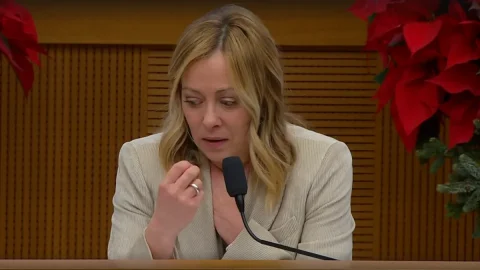The ban on night driving for heavy goods vehicles in the Austrian Tyrol, which has been in force since 1 January this year by the will of the President of Tyrol, has the admirable aim of improving air quality but according to a recent legal opinion it is against to European law, which has in free movement of goods one of the pillars on which the single market is based. This is the complaint supported by Unioncamere, Uniontrasporti, by the German association BGL and by the MEPs Markus Feber and Massimiliano Salini (Forza Italia), who also recall that this ban, moreover further tightened, affects an interchange, that on the axis of Brennero, which is worth a total of 136 billion euros.
Commercial exports to Austria, Germany and the Scandinavian countries, second a report by Unioncamere, is worth 5,8% of the Italian GDP, and almost 10% of that of the North-East alone. But the limitations imposed by Austria have already caused a significant drop in flows between these countries in recent years, making it even more urgent to implement the tunnel for rail freight transport between Italy and Austria, which, however, according to the Minister of Infrastructure Enrico Giovannini, will not be ready before 2031. In the meantime, a very strict situation has to be reckoned with: today on the Tyrolean section of the A22, from midnight to 4.30, trucks with full mass cannot pass load exceeding 7,5 tonnes, and all diesel-engined HGVs, regardless of load.
Only LNG trucks and hydrogen and electric trucks (not yet available on the market) can circulate, while the situation is completely opposite for traffic of destination or of Tyrolean origin: all EURO6 trucks - even the first generation ones - can pass without restrictions. One of the objections presented in the report by Prof. Dr. Hilpold, professor of European law at the University of Innsbruck, is that the goal of improving air quality however it is not reachable, given that freight traffic, “due to the lack of a reliable alternative, simply shifts towards the daytime hours and therefore leads to constant situations of increased congestion, stop-and-go traffic and long queues”.
“The ban on night driving causes artificial congestion during the day and thus causes negative effects on the environment. In addition, the tailor-made exemption for Tyroleans deliberately discriminates against German and Italian entrepreneurs”, adds MEP Markus Ferber. The ideal solution, for the environment and for preserving commercial exchange, will be the new Brenner railway tunnel: Italy is far ahead of Austria in the construction of base tunnels on its side, which should also be equally interested , since it doesn't have many other commercial outlets. To speed up the project, the funds from the Pnrr will be decisive: the work is included among the strategic ones in the European Green New Deal, which plans to reduce CO2 emissions deriving from transport by 90% between now and 2050.





